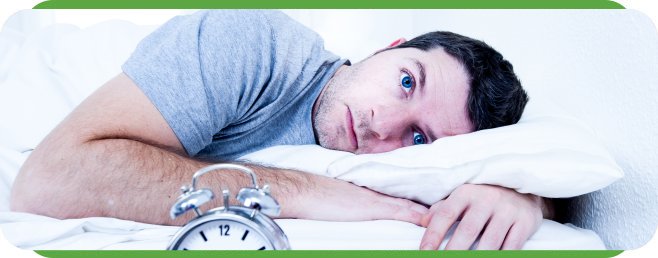What Leads to Difficulty Falling Asleep?
Difficulty falling asleep can be caused by stress, anxiety, poor sleep habits, or underlying conditions like TMJ. Discomfort from jaw misalignment or teeth grinding can also disrupt the ability to relax. For personalized solutions, consult an expert at the Koala Center For Sleep & TMJ Disorders. For more information, please contact us today or request an appointment online now! We have convenient locations in Bloomington IL, Peoria/Dunlap IL, El Paso TX, and Wausau WI.


Table of Contents:
What causes difficulty falling asleep?
How can stress or anxiety affect my ability to fall asleep?
Is insomnia the same as difficulty falling asleep?
When should I see a doctor for difficulty falling asleep?
Physiological factors like circadian rhythm disruption and an irregular sleep schedule can disrupt your body’s natural sleep-wake cycle. We can help you manage this through personalized sleep routines and treatments. We also help in managing sleep disturbances caused by medical conditions and medications.
● Psychological Factors: We have a team of experts who can help manage the psychological factors like stress, anxiety, and racing thoughts, which might be causing your sleep issues. We also help patients who have developed a fear of sleep due to negative thoughts and apprehensions about sleep.
● Environmental Factors: We provide advice on how to modify your environment to optimize your sleep. This includes managing noise and light and maintaining an optimal temperature in your sleeping area.
● Behavioral Factors: Our team can guide you in managing behavioral factors such as caffeine and alcohol consumption, late-night eating or engaging in stimulating activities before bed, and excessive daytime napping.
● Other Factors: We also understand the role of age in altering sleep patterns and can provide solutions tailored to your age group. In addition, we specialize in diagnosing and treating sleep disorders, such as sleep apnea, restless legs syndrome, and circadian rhythm disorders.
Stress and anxiety have substantial impacts on sleep, often making it challenging to fall asleep and maintain a regular, healthy sleep cycle. The brain can become overly stimulated due to these emotional states, creating a cycle of worry and fear that impedes relaxation and sleep quality.
We deal with different aspects of sleep disruption caused by stress and anxiety. These include:
● Physiological Response: Stress and anxiety trigger the release of hormones like cortisol and adrenaline, causing increased heart rate, blood pressure, and alertness, all of which are counterproductive to sleep.
● Cognitive Overactivity: Mental hyperactivity due to stress or anxiety can lead to rumination on worries or overthinking, making it difficult to attain quality sleep.
● Neurochemical Imbalances: Stress and anxiety can disrupt sleep patterns, leading to difficulty falling asleep or staying asleep, restless sleep, or disturbing dreams. In severe cases, these conditions could result in disorders like insomnia, which our professionals are adept at diagnosing and treating.
● Muscle Tension: Anxiety often leads to muscle tension, further compromising sleep quality.
Our professionals also understand the physiological effects of stress and anxiety, such as increased heart rate and shallow breathing, which can disrupt sleep. Additionally, we recognize that chronic stress affects immune system function, making individuals more vulnerable to health issues that can further disrupt sleep.
Moreover, we are aware of the lifestyle changes that stress and anxiety can cause, which can further interfere with sleep. These can include reliance on substances like alcohol or sleeping pills, disruption of the natural sleep-wake cycle, and reduced sleep time due to late-night work or tasks.
Insomnia is a wide-ranging sleep disorder that involves a consistent difficulty in initiating or maintaining sleep or waking up too early. Chronic insomnia, which occurs at least three nights per week for three months or longer, can lead to daytime sleepiness and impaired functioning. On the other hand, difficulty falling asleep, also known as sleep-onset insomnia, refers specifically to the inability to fall asleep at the beginning of the night.
Regardless of the type of sleep disorder you’re experiencing, we are equipped with the expertise and tools to help you manage your symptoms effectively. Our skilled team can aid in identifying the underlying causes of your sleep issues, whether they stem from stress, anxiety, depression, poor sleep hygiene, or medical conditions such as thyroid issues or restless legs syndrome. In the case of insomnia, causes may also include pain, sleep apnea, mental health disorders, certain medications, or genetic factors.
At Koala Center For Sleep & TMJ Disorders, we tailor treatment plans to your specific needs and circumstances. Treatment for difficulty falling asleep may involve cognitive-behavioral therapy, relaxation techniques, and lifestyle modifications. If you’re dealing with insomnia, your treatment could include medications, cognitive-behavioral therapy, lifestyle adjustments, or treatment of underlying medical conditions, depending on the cause of your insomnia.
Remember, while difficulty falling asleep is a common symptom of insomnia, they are not the same. Difficulty falling asleep may be episodic and resolve on its own. In contrast, insomnia represents a persistent and significant sleep disturbance that requires professional intervention.
It’s crucial to consult with our sleep professionals if your sleep issues are causing significant distress or impacting your ability to function during the day. Symptoms such as feeling excessively tired, having difficulty concentrating, experiencing mood disturbances, or a decrease in work or school performance are indicators that you should seek medical help at our sleep center.
Sleep difficulties can also be associated with other disruptive symptoms, such as chronic pain, difficulty breathing, frequent urination, chest pain, shortness of breath, or night sweats. These could be signs of underlying conditions like sleep apnea, diabetes, thyroid problems, depression, or anxiety disorders that our team can help address.
If you’re relying on sleep medications for more than a few weeks, or you’re increasing your dosage without a doctor’s approval, it’s crucial to consult with our professionals at Koala. Our team can provide personalized recommendations and treatments to address your specific sleep concerns.
Moreover, if you’ve tried various self-help strategies such as improving your sleep hygiene, regular exercise, avoiding caffeine before bed, practicing relaxation techniques, or establishing a regular sleep schedule, and these haven’t improved your sleep, our team is here to provide expert guidance.
Lastly, significant life events, such as job loss, divorce, or the death of a loved one, can temporarily disrupt sleep patterns. However, if your sleep difficulties persist despite these life events subsiding, seeking professional help may be necessary.
In summary, persistent, distressing difficulty falling asleep, resistant to self-help strategies, associated with other symptoms, linked to underlying medical conditions, leading to dependency on medication, or persisting despite life events subsiding, warrants a consultation with our healthcare professionals at the Koala Center For Sleep & TMJ Disorders.

Additional Services You May Need
▸ KoalaKIDZzz®
▸ Sleep Apnea
▸ Snoring
▸ TMJ Disorder
▸ Fatigue
▸ Sleep Disorders
▸ Weight Loss
▸ CPAP Alternative
▸ Oral Appliances




